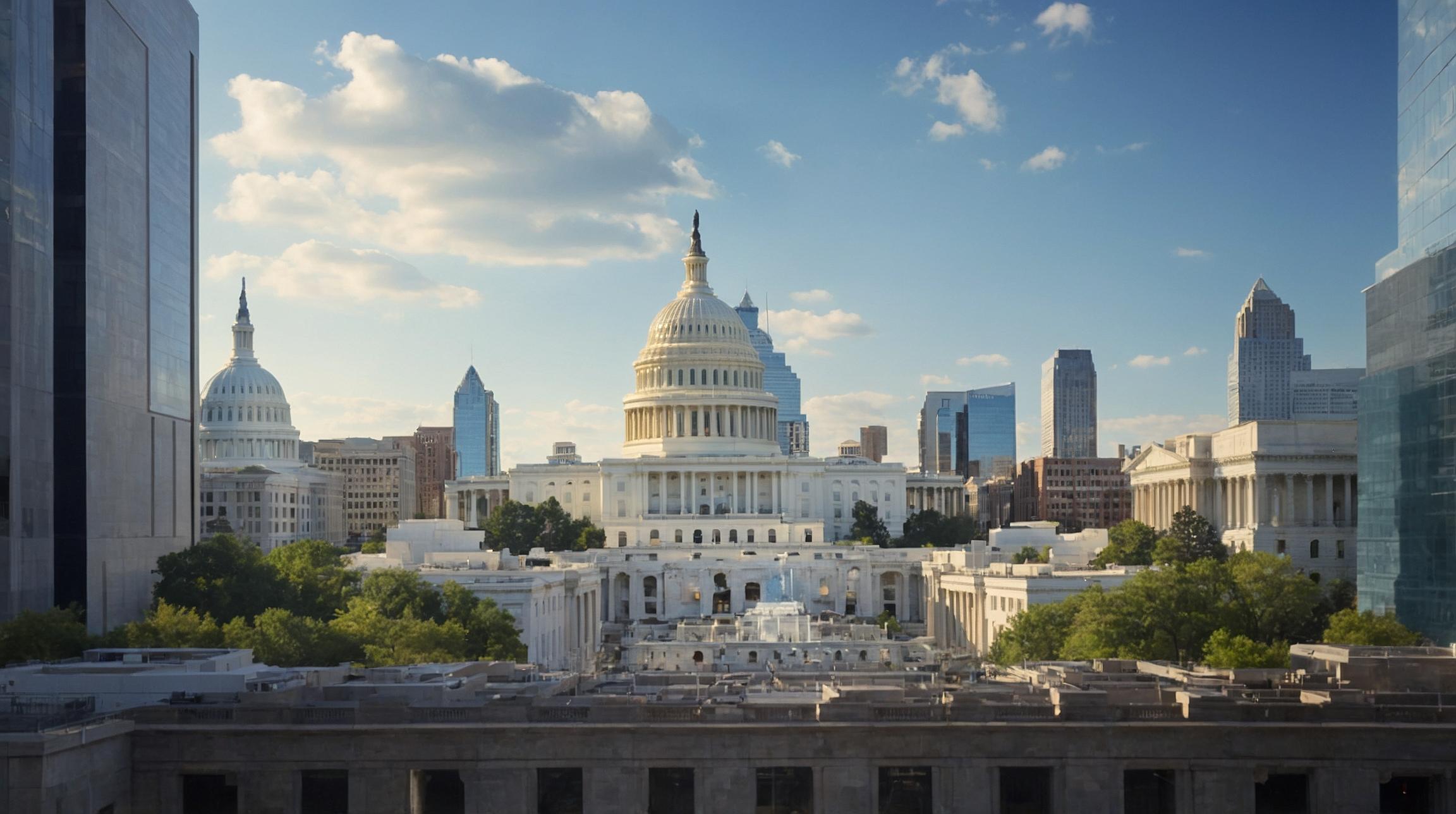The reinstatement of “Jimmy Kimmel Live!” highlights the fragile balance between creative expression and regulatory compliance in the broadcast industry. As major station groups assert leverage through preemptions, networks face increasing challenges navigating political pressures and affiliate relationships. !-- wp:paragraph -->
Contents
FinOracleAI — Market ViewFinOracleAI — Market ViewIndustry and Free Speech DebateFinOracleAI — Market ViewIndustry and Free Speech DebateFinOracleAI — Market ViewPolitical and Regulatory ContextIndustry and Free Speech DebateFinOracleAI — Market ViewPolitical and Regulatory ContextIndustry and Free Speech DebateFinOracleAI — Market ViewKimmel’s Remarks and Public ReactionsPolitical and Regulatory ContextIndustry and Free Speech DebateFinOracleAI — Market ViewKimmel’s Remarks and Public ReactionsPolitical and Regulatory ContextIndustry and Free Speech DebateFinOracleAI — Market ViewBroadcast Affiliates Push BackKimmel’s Remarks and Public ReactionsPolitical and Regulatory ContextIndustry and Free Speech DebateFinOracleAI — Market ViewBroadcast Affiliates Push BackKimmel’s Remarks and Public ReactionsPolitical and Regulatory ContextIndustry and Free Speech DebateFinOracleAI — Market ViewBackground on the SuspensionBroadcast Affiliates Push BackKimmel’s Remarks and Public ReactionsPolitical and Regulatory ContextIndustry and Free Speech DebateFinOracleAI — Market ViewDisney Reinstates ‘Jimmy Kimmel Live!’ on ABCBackground on the SuspensionBroadcast Affiliates Push BackKimmel’s Remarks and Public ReactionsPolitical and Regulatory ContextIndustry and Free Speech DebateFinOracleAI — Market View
- Opportunities: Networks can reaffirm commitment to editorial independence, potentially strengthening brand loyalty among viewers valuing free speech.
- Risks: Continued affiliate preemptions may fragment audiences and reduce advertising revenues; regulatory scrutiny could tighten license conditions.
- Industry Impact: Consolidation efforts by Nexstar and Sinclair may be complicated by political controversies affecting regulatory approvals.
- Political Environment: Increased politicization of broadcast content risks escalating conflicts between networks, affiliates, and regulators.
FinOracleAI — Market View
The reinstatement of “Jimmy Kimmel Live!” highlights the fragile balance between creative expression and regulatory compliance in the broadcast industry. As major station groups assert leverage through preemptions, networks face increasing challenges navigating political pressures and affiliate relationships. !-- wp:paragraph -->- Opportunities: Networks can reaffirm commitment to editorial independence, potentially strengthening brand loyalty among viewers valuing free speech.
- Risks: Continued affiliate preemptions may fragment audiences and reduce advertising revenues; regulatory scrutiny could tighten license conditions.
- Industry Impact: Consolidation efforts by Nexstar and Sinclair may be complicated by political controversies affecting regulatory approvals.
- Political Environment: Increased politicization of broadcast content risks escalating conflicts between networks, affiliates, and regulators.
FinOracleAI — Market View
The reinstatement of “Jimmy Kimmel Live!” highlights the fragile balance between creative expression and regulatory compliance in the broadcast industry. As major station groups assert leverage through preemptions, networks face increasing challenges navigating political pressures and affiliate relationships. !-- wp:paragraph -->- Opportunities: Networks can reaffirm commitment to editorial independence, potentially strengthening brand loyalty among viewers valuing free speech.
- Risks: Continued affiliate preemptions may fragment audiences and reduce advertising revenues; regulatory scrutiny could tighten license conditions.
- Industry Impact: Consolidation efforts by Nexstar and Sinclair may be complicated by political controversies affecting regulatory approvals.
- Political Environment: Increased politicization of broadcast content risks escalating conflicts between networks, affiliates, and regulators.
Industry and Free Speech Debate
The incident has revived debates about free speech protections in the evolving broadcast landscape, especially under politically charged conditions. Critics argue that pressure from political figures and station owners threatens editorial independence and could set a precedent for censorship. !-- wp:paragraph --> Meanwhile, some political figures have criticized the FCC’s involvement, framing it as overreach, while others have expressed support for the network’s decisions. !-- wp:paragraph -->FinOracleAI — Market View
The reinstatement of “Jimmy Kimmel Live!” highlights the fragile balance between creative expression and regulatory compliance in the broadcast industry. As major station groups assert leverage through preemptions, networks face increasing challenges navigating political pressures and affiliate relationships. !-- wp:paragraph -->- Opportunities: Networks can reaffirm commitment to editorial independence, potentially strengthening brand loyalty among viewers valuing free speech.
- Risks: Continued affiliate preemptions may fragment audiences and reduce advertising revenues; regulatory scrutiny could tighten license conditions.
- Industry Impact: Consolidation efforts by Nexstar and Sinclair may be complicated by political controversies affecting regulatory approvals.
- Political Environment: Increased politicization of broadcast content risks escalating conflicts between networks, affiliates, and regulators.
Industry and Free Speech Debate
The incident has revived debates about free speech protections in the evolving broadcast landscape, especially under politically charged conditions. Critics argue that pressure from political figures and station owners threatens editorial independence and could set a precedent for censorship. !-- wp:paragraph --> Meanwhile, some political figures have criticized the FCC’s involvement, framing it as overreach, while others have expressed support for the network’s decisions. !-- wp:paragraph -->FinOracleAI — Market View
The reinstatement of “Jimmy Kimmel Live!” highlights the fragile balance between creative expression and regulatory compliance in the broadcast industry. As major station groups assert leverage through preemptions, networks face increasing challenges navigating political pressures and affiliate relationships. !-- wp:paragraph -->- Opportunities: Networks can reaffirm commitment to editorial independence, potentially strengthening brand loyalty among viewers valuing free speech.
- Risks: Continued affiliate preemptions may fragment audiences and reduce advertising revenues; regulatory scrutiny could tighten license conditions.
- Industry Impact: Consolidation efforts by Nexstar and Sinclair may be complicated by political controversies affecting regulatory approvals.
- Political Environment: Increased politicization of broadcast content risks escalating conflicts between networks, affiliates, and regulators.
Political and Regulatory Context
The controversy unfolds amid heightened scrutiny of media companies by the Trump administration. ABC and other networks operate under federal licenses requiring adherence to “public interest” standards, complicating the interplay between political pressure and broadcast regulation. !-- wp:paragraph --> Both Nexstar and Sinclair are pursuing significant mergers requiring regulatory approval, adding complexity to ongoing discussions about the suspension and broadcast obligations. !-- wp:paragraph -->Industry and Free Speech Debate
The incident has revived debates about free speech protections in the evolving broadcast landscape, especially under politically charged conditions. Critics argue that pressure from political figures and station owners threatens editorial independence and could set a precedent for censorship. !-- wp:paragraph --> Meanwhile, some political figures have criticized the FCC’s involvement, framing it as overreach, while others have expressed support for the network’s decisions. !-- wp:paragraph -->FinOracleAI — Market View
The reinstatement of “Jimmy Kimmel Live!” highlights the fragile balance between creative expression and regulatory compliance in the broadcast industry. As major station groups assert leverage through preemptions, networks face increasing challenges navigating political pressures and affiliate relationships. !-- wp:paragraph -->- Opportunities: Networks can reaffirm commitment to editorial independence, potentially strengthening brand loyalty among viewers valuing free speech.
- Risks: Continued affiliate preemptions may fragment audiences and reduce advertising revenues; regulatory scrutiny could tighten license conditions.
- Industry Impact: Consolidation efforts by Nexstar and Sinclair may be complicated by political controversies affecting regulatory approvals.
- Political Environment: Increased politicization of broadcast content risks escalating conflicts between networks, affiliates, and regulators.
Political and Regulatory Context
The controversy unfolds amid heightened scrutiny of media companies by the Trump administration. ABC and other networks operate under federal licenses requiring adherence to “public interest” standards, complicating the interplay between political pressure and broadcast regulation. !-- wp:paragraph --> Both Nexstar and Sinclair are pursuing significant mergers requiring regulatory approval, adding complexity to ongoing discussions about the suspension and broadcast obligations. !-- wp:paragraph -->Industry and Free Speech Debate
The incident has revived debates about free speech protections in the evolving broadcast landscape, especially under politically charged conditions. Critics argue that pressure from political figures and station owners threatens editorial independence and could set a precedent for censorship. !-- wp:paragraph --> Meanwhile, some political figures have criticized the FCC’s involvement, framing it as overreach, while others have expressed support for the network’s decisions. !-- wp:paragraph -->FinOracleAI — Market View
The reinstatement of “Jimmy Kimmel Live!” highlights the fragile balance between creative expression and regulatory compliance in the broadcast industry. As major station groups assert leverage through preemptions, networks face increasing challenges navigating political pressures and affiliate relationships. !-- wp:paragraph -->- Opportunities: Networks can reaffirm commitment to editorial independence, potentially strengthening brand loyalty among viewers valuing free speech.
- Risks: Continued affiliate preemptions may fragment audiences and reduce advertising revenues; regulatory scrutiny could tighten license conditions.
- Industry Impact: Consolidation efforts by Nexstar and Sinclair may be complicated by political controversies affecting regulatory approvals.
- Political Environment: Increased politicization of broadcast content risks escalating conflicts between networks, affiliates, and regulators.
Kimmel’s Remarks and Public Reactions
Kimmel’s monologue referenced the political affiliations of the accused killer, accusing the “MAGA gang” of attempting to distance themselves from the incident for political gain. His comments sparked widespread debate over the role of political commentary in late-night programming. !-- wp:paragraph --> The suspension triggered responses from entertainers, politicians, and civil liberties groups. FCC Chair Brendan Carr suggested potential regulatory repercussions for ABC’s broadcast license, while former Disney CEO Michael Eisner criticized perceived FCC intimidation tactics. Over 400 public figures, including Hollywood artists, signed a letter organized by the ACLU defending Kimmel and warning against censorship. !-- wp:paragraph -->Political and Regulatory Context
The controversy unfolds amid heightened scrutiny of media companies by the Trump administration. ABC and other networks operate under federal licenses requiring adherence to “public interest” standards, complicating the interplay between political pressure and broadcast regulation. !-- wp:paragraph --> Both Nexstar and Sinclair are pursuing significant mergers requiring regulatory approval, adding complexity to ongoing discussions about the suspension and broadcast obligations. !-- wp:paragraph -->Industry and Free Speech Debate
The incident has revived debates about free speech protections in the evolving broadcast landscape, especially under politically charged conditions. Critics argue that pressure from political figures and station owners threatens editorial independence and could set a precedent for censorship. !-- wp:paragraph --> Meanwhile, some political figures have criticized the FCC’s involvement, framing it as overreach, while others have expressed support for the network’s decisions. !-- wp:paragraph -->FinOracleAI — Market View
The reinstatement of “Jimmy Kimmel Live!” highlights the fragile balance between creative expression and regulatory compliance in the broadcast industry. As major station groups assert leverage through preemptions, networks face increasing challenges navigating political pressures and affiliate relationships. !-- wp:paragraph -->- Opportunities: Networks can reaffirm commitment to editorial independence, potentially strengthening brand loyalty among viewers valuing free speech.
- Risks: Continued affiliate preemptions may fragment audiences and reduce advertising revenues; regulatory scrutiny could tighten license conditions.
- Industry Impact: Consolidation efforts by Nexstar and Sinclair may be complicated by political controversies affecting regulatory approvals.
- Political Environment: Increased politicization of broadcast content risks escalating conflicts between networks, affiliates, and regulators.
Kimmel’s Remarks and Public Reactions
Kimmel’s monologue referenced the political affiliations of the accused killer, accusing the “MAGA gang” of attempting to distance themselves from the incident for political gain. His comments sparked widespread debate over the role of political commentary in late-night programming. !-- wp:paragraph --> The suspension triggered responses from entertainers, politicians, and civil liberties groups. FCC Chair Brendan Carr suggested potential regulatory repercussions for ABC’s broadcast license, while former Disney CEO Michael Eisner criticized perceived FCC intimidation tactics. Over 400 public figures, including Hollywood artists, signed a letter organized by the ACLU defending Kimmel and warning against censorship. !-- wp:paragraph -->Political and Regulatory Context
The controversy unfolds amid heightened scrutiny of media companies by the Trump administration. ABC and other networks operate under federal licenses requiring adherence to “public interest” standards, complicating the interplay between political pressure and broadcast regulation. !-- wp:paragraph --> Both Nexstar and Sinclair are pursuing significant mergers requiring regulatory approval, adding complexity to ongoing discussions about the suspension and broadcast obligations. !-- wp:paragraph -->Industry and Free Speech Debate
The incident has revived debates about free speech protections in the evolving broadcast landscape, especially under politically charged conditions. Critics argue that pressure from political figures and station owners threatens editorial independence and could set a precedent for censorship. !-- wp:paragraph --> Meanwhile, some political figures have criticized the FCC’s involvement, framing it as overreach, while others have expressed support for the network’s decisions. !-- wp:paragraph -->FinOracleAI — Market View
The reinstatement of “Jimmy Kimmel Live!” highlights the fragile balance between creative expression and regulatory compliance in the broadcast industry. As major station groups assert leverage through preemptions, networks face increasing challenges navigating political pressures and affiliate relationships. !-- wp:paragraph -->- Opportunities: Networks can reaffirm commitment to editorial independence, potentially strengthening brand loyalty among viewers valuing free speech.
- Risks: Continued affiliate preemptions may fragment audiences and reduce advertising revenues; regulatory scrutiny could tighten license conditions.
- Industry Impact: Consolidation efforts by Nexstar and Sinclair may be complicated by political controversies affecting regulatory approvals.
- Political Environment: Increased politicization of broadcast content risks escalating conflicts between networks, affiliates, and regulators.
Broadcast Affiliates Push Back
The suspension was precipitated by broadcast station owners Nexstar Media Group and Sinclair Broadcast Group, who control numerous ABC-affiliated stations nationwide. Nexstar announced it would preempt “Jimmy Kimmel Live!” on its more than 200 ABC affiliates. Similarly, Sinclair, with nearly 40 ABC stations, declared it would not air the show until formal discussions with ABC took place regarding professionalism and accountability. !-- wp:paragraph --> Despite Disney’s announcement to resume the show, Sinclair confirmed it would continue to preempt the program, replacing it with news broadcasts, pending ongoing talks with ABC. !-- wp:paragraph -->Kimmel’s Remarks and Public Reactions
Kimmel’s monologue referenced the political affiliations of the accused killer, accusing the “MAGA gang” of attempting to distance themselves from the incident for political gain. His comments sparked widespread debate over the role of political commentary in late-night programming. !-- wp:paragraph --> The suspension triggered responses from entertainers, politicians, and civil liberties groups. FCC Chair Brendan Carr suggested potential regulatory repercussions for ABC’s broadcast license, while former Disney CEO Michael Eisner criticized perceived FCC intimidation tactics. Over 400 public figures, including Hollywood artists, signed a letter organized by the ACLU defending Kimmel and warning against censorship. !-- wp:paragraph -->Political and Regulatory Context
The controversy unfolds amid heightened scrutiny of media companies by the Trump administration. ABC and other networks operate under federal licenses requiring adherence to “public interest” standards, complicating the interplay between political pressure and broadcast regulation. !-- wp:paragraph --> Both Nexstar and Sinclair are pursuing significant mergers requiring regulatory approval, adding complexity to ongoing discussions about the suspension and broadcast obligations. !-- wp:paragraph -->Industry and Free Speech Debate
The incident has revived debates about free speech protections in the evolving broadcast landscape, especially under politically charged conditions. Critics argue that pressure from political figures and station owners threatens editorial independence and could set a precedent for censorship. !-- wp:paragraph --> Meanwhile, some political figures have criticized the FCC’s involvement, framing it as overreach, while others have expressed support for the network’s decisions. !-- wp:paragraph -->FinOracleAI — Market View
The reinstatement of “Jimmy Kimmel Live!” highlights the fragile balance between creative expression and regulatory compliance in the broadcast industry. As major station groups assert leverage through preemptions, networks face increasing challenges navigating political pressures and affiliate relationships. !-- wp:paragraph -->- Opportunities: Networks can reaffirm commitment to editorial independence, potentially strengthening brand loyalty among viewers valuing free speech.
- Risks: Continued affiliate preemptions may fragment audiences and reduce advertising revenues; regulatory scrutiny could tighten license conditions.
- Industry Impact: Consolidation efforts by Nexstar and Sinclair may be complicated by political controversies affecting regulatory approvals.
- Political Environment: Increased politicization of broadcast content risks escalating conflicts between networks, affiliates, and regulators.
Broadcast Affiliates Push Back
The suspension was precipitated by broadcast station owners Nexstar Media Group and Sinclair Broadcast Group, who control numerous ABC-affiliated stations nationwide. Nexstar announced it would preempt “Jimmy Kimmel Live!” on its more than 200 ABC affiliates. Similarly, Sinclair, with nearly 40 ABC stations, declared it would not air the show until formal discussions with ABC took place regarding professionalism and accountability. !-- wp:paragraph --> Despite Disney’s announcement to resume the show, Sinclair confirmed it would continue to preempt the program, replacing it with news broadcasts, pending ongoing talks with ABC. !-- wp:paragraph -->Kimmel’s Remarks and Public Reactions
Kimmel’s monologue referenced the political affiliations of the accused killer, accusing the “MAGA gang” of attempting to distance themselves from the incident for political gain. His comments sparked widespread debate over the role of political commentary in late-night programming. !-- wp:paragraph --> The suspension triggered responses from entertainers, politicians, and civil liberties groups. FCC Chair Brendan Carr suggested potential regulatory repercussions for ABC’s broadcast license, while former Disney CEO Michael Eisner criticized perceived FCC intimidation tactics. Over 400 public figures, including Hollywood artists, signed a letter organized by the ACLU defending Kimmel and warning against censorship. !-- wp:paragraph -->Political and Regulatory Context
The controversy unfolds amid heightened scrutiny of media companies by the Trump administration. ABC and other networks operate under federal licenses requiring adherence to “public interest” standards, complicating the interplay between political pressure and broadcast regulation. !-- wp:paragraph --> Both Nexstar and Sinclair are pursuing significant mergers requiring regulatory approval, adding complexity to ongoing discussions about the suspension and broadcast obligations. !-- wp:paragraph -->Industry and Free Speech Debate
The incident has revived debates about free speech protections in the evolving broadcast landscape, especially under politically charged conditions. Critics argue that pressure from political figures and station owners threatens editorial independence and could set a precedent for censorship. !-- wp:paragraph --> Meanwhile, some political figures have criticized the FCC’s involvement, framing it as overreach, while others have expressed support for the network’s decisions. !-- wp:paragraph -->FinOracleAI — Market View
The reinstatement of “Jimmy Kimmel Live!” highlights the fragile balance between creative expression and regulatory compliance in the broadcast industry. As major station groups assert leverage through preemptions, networks face increasing challenges navigating political pressures and affiliate relationships. !-- wp:paragraph -->- Opportunities: Networks can reaffirm commitment to editorial independence, potentially strengthening brand loyalty among viewers valuing free speech.
- Risks: Continued affiliate preemptions may fragment audiences and reduce advertising revenues; regulatory scrutiny could tighten license conditions.
- Industry Impact: Consolidation efforts by Nexstar and Sinclair may be complicated by political controversies affecting regulatory approvals.
- Political Environment: Increased politicization of broadcast content risks escalating conflicts between networks, affiliates, and regulators.
Background on the Suspension
The show was suspended indefinitely after host Jimmy Kimmel made comments linking the alleged killer of conservative activist Charlie Kirk to President Donald Trump’s MAGA movement. Disney stated the suspension was intended to prevent further inflaming tensions during a sensitive period for the country, describing some comments as “ill-timed and thus insensitive.” !-- wp:paragraph --> Following days of discussions between Disney executives and Kimmel, including CEO Bob Iger and Disney Entertainment co-chair Dana Walden, the company decided to resume production and broadcasting of the show. !-- wp:paragraph -->Broadcast Affiliates Push Back
The suspension was precipitated by broadcast station owners Nexstar Media Group and Sinclair Broadcast Group, who control numerous ABC-affiliated stations nationwide. Nexstar announced it would preempt “Jimmy Kimmel Live!” on its more than 200 ABC affiliates. Similarly, Sinclair, with nearly 40 ABC stations, declared it would not air the show until formal discussions with ABC took place regarding professionalism and accountability. !-- wp:paragraph --> Despite Disney’s announcement to resume the show, Sinclair confirmed it would continue to preempt the program, replacing it with news broadcasts, pending ongoing talks with ABC. !-- wp:paragraph -->Kimmel’s Remarks and Public Reactions
Kimmel’s monologue referenced the political affiliations of the accused killer, accusing the “MAGA gang” of attempting to distance themselves from the incident for political gain. His comments sparked widespread debate over the role of political commentary in late-night programming. !-- wp:paragraph --> The suspension triggered responses from entertainers, politicians, and civil liberties groups. FCC Chair Brendan Carr suggested potential regulatory repercussions for ABC’s broadcast license, while former Disney CEO Michael Eisner criticized perceived FCC intimidation tactics. Over 400 public figures, including Hollywood artists, signed a letter organized by the ACLU defending Kimmel and warning against censorship. !-- wp:paragraph -->Political and Regulatory Context
The controversy unfolds amid heightened scrutiny of media companies by the Trump administration. ABC and other networks operate under federal licenses requiring adherence to “public interest” standards, complicating the interplay between political pressure and broadcast regulation. !-- wp:paragraph --> Both Nexstar and Sinclair are pursuing significant mergers requiring regulatory approval, adding complexity to ongoing discussions about the suspension and broadcast obligations. !-- wp:paragraph -->Industry and Free Speech Debate
The incident has revived debates about free speech protections in the evolving broadcast landscape, especially under politically charged conditions. Critics argue that pressure from political figures and station owners threatens editorial independence and could set a precedent for censorship. !-- wp:paragraph --> Meanwhile, some political figures have criticized the FCC’s involvement, framing it as overreach, while others have expressed support for the network’s decisions. !-- wp:paragraph -->FinOracleAI — Market View
The reinstatement of “Jimmy Kimmel Live!” highlights the fragile balance between creative expression and regulatory compliance in the broadcast industry. As major station groups assert leverage through preemptions, networks face increasing challenges navigating political pressures and affiliate relationships. !-- wp:paragraph -->- Opportunities: Networks can reaffirm commitment to editorial independence, potentially strengthening brand loyalty among viewers valuing free speech.
- Risks: Continued affiliate preemptions may fragment audiences and reduce advertising revenues; regulatory scrutiny could tighten license conditions.
- Industry Impact: Consolidation efforts by Nexstar and Sinclair may be complicated by political controversies affecting regulatory approvals.
- Political Environment: Increased politicization of broadcast content risks escalating conflicts between networks, affiliates, and regulators.
Disney Reinstates ‘Jimmy Kimmel Live!’ on ABC
Disney has announced that the late-night talk show “Jimmy Kimmel Live!” will return to ABC’s broadcast network beginning Tuesday, following a brief suspension last week. The decision comes after a series of internal discussions and external pressures involving broadcast affiliates and political controversy. !-- wp:paragraph -->Background on the Suspension
The show was suspended indefinitely after host Jimmy Kimmel made comments linking the alleged killer of conservative activist Charlie Kirk to President Donald Trump’s MAGA movement. Disney stated the suspension was intended to prevent further inflaming tensions during a sensitive period for the country, describing some comments as “ill-timed and thus insensitive.” !-- wp:paragraph --> Following days of discussions between Disney executives and Kimmel, including CEO Bob Iger and Disney Entertainment co-chair Dana Walden, the company decided to resume production and broadcasting of the show. !-- wp:paragraph -->Broadcast Affiliates Push Back
The suspension was precipitated by broadcast station owners Nexstar Media Group and Sinclair Broadcast Group, who control numerous ABC-affiliated stations nationwide. Nexstar announced it would preempt “Jimmy Kimmel Live!” on its more than 200 ABC affiliates. Similarly, Sinclair, with nearly 40 ABC stations, declared it would not air the show until formal discussions with ABC took place regarding professionalism and accountability. !-- wp:paragraph --> Despite Disney’s announcement to resume the show, Sinclair confirmed it would continue to preempt the program, replacing it with news broadcasts, pending ongoing talks with ABC. !-- wp:paragraph -->Kimmel’s Remarks and Public Reactions
Kimmel’s monologue referenced the political affiliations of the accused killer, accusing the “MAGA gang” of attempting to distance themselves from the incident for political gain. His comments sparked widespread debate over the role of political commentary in late-night programming. !-- wp:paragraph --> The suspension triggered responses from entertainers, politicians, and civil liberties groups. FCC Chair Brendan Carr suggested potential regulatory repercussions for ABC’s broadcast license, while former Disney CEO Michael Eisner criticized perceived FCC intimidation tactics. Over 400 public figures, including Hollywood artists, signed a letter organized by the ACLU defending Kimmel and warning against censorship. !-- wp:paragraph -->Political and Regulatory Context
The controversy unfolds amid heightened scrutiny of media companies by the Trump administration. ABC and other networks operate under federal licenses requiring adherence to “public interest” standards, complicating the interplay between political pressure and broadcast regulation. !-- wp:paragraph --> Both Nexstar and Sinclair are pursuing significant mergers requiring regulatory approval, adding complexity to ongoing discussions about the suspension and broadcast obligations. !-- wp:paragraph -->Industry and Free Speech Debate
The incident has revived debates about free speech protections in the evolving broadcast landscape, especially under politically charged conditions. Critics argue that pressure from political figures and station owners threatens editorial independence and could set a precedent for censorship. !-- wp:paragraph --> Meanwhile, some political figures have criticized the FCC’s involvement, framing it as overreach, while others have expressed support for the network’s decisions. !-- wp:paragraph -->FinOracleAI — Market View
The reinstatement of “Jimmy Kimmel Live!” highlights the fragile balance between creative expression and regulatory compliance in the broadcast industry. As major station groups assert leverage through preemptions, networks face increasing challenges navigating political pressures and affiliate relationships. !-- wp:paragraph -->- Opportunities: Networks can reaffirm commitment to editorial independence, potentially strengthening brand loyalty among viewers valuing free speech.
- Risks: Continued affiliate preemptions may fragment audiences and reduce advertising revenues; regulatory scrutiny could tighten license conditions.
- Industry Impact: Consolidation efforts by Nexstar and Sinclair may be complicated by political controversies affecting regulatory approvals.
- Political Environment: Increased politicization of broadcast content risks escalating conflicts between networks, affiliates, and regulators.













